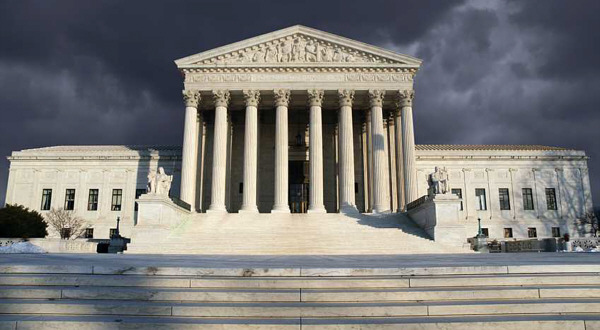

Anti-gunners Launch Campaign to
Intimidate SCOTUS as 2A Case Looms
By NRA-ILA. October 11, 2021
For many decades, 'gun control' proponents who saw their fortunes wane in legislatures from coast to coast and who were unable to get traction with Congress could at least console themselves with the thought that activist courts had their backs. The Second Amendment, after all, had been all but written out of the U.S. Bill of Rights by law professors and politically-minded judges, as cities and even the U.S. Congress increasingly adopted 'gun control' in the Twentieth Century.
But none of that could change the text, history, or tradition of the Second Amendment, which led to an unbroken and uniquely American embrace of private gun ownership as a defense against crime and tyranny and also gave rise to the popular understanding of bearing arms as a birthright of U.S. citizenship.
Those facts and that understanding were formally recognized as constitutional doctrine by the U.S. Supreme Court in the landmark Heller case in 2008.
But the anti-gun orthodoxy, which by then had taken hold of the U.S. legal establishment, would not relent easily. For over a decade courts have generally ignored the holding and reasoning of Heller (and its 2010 follow-up McDonald) to uphold most of the same 'gun control' whose passage was predicated on the idea that the Second Amendment had nothing to say about individual gun ownership or use.
Now, however, the Second Amendment is back before a U.S. Supreme Court that features the strongest majority of originalists in modern times. An originalist is simply a judge who believes that constitutional provisions should be interpreted according to the way they were understood by the public at the time of their adoption (as opposed to proponents of a living constitution, who basically believe the U.S. Constitution has no fixed meaning and should always yield to what the elite consider the necessities of progress and “good” policy).
..... 
![]()

























